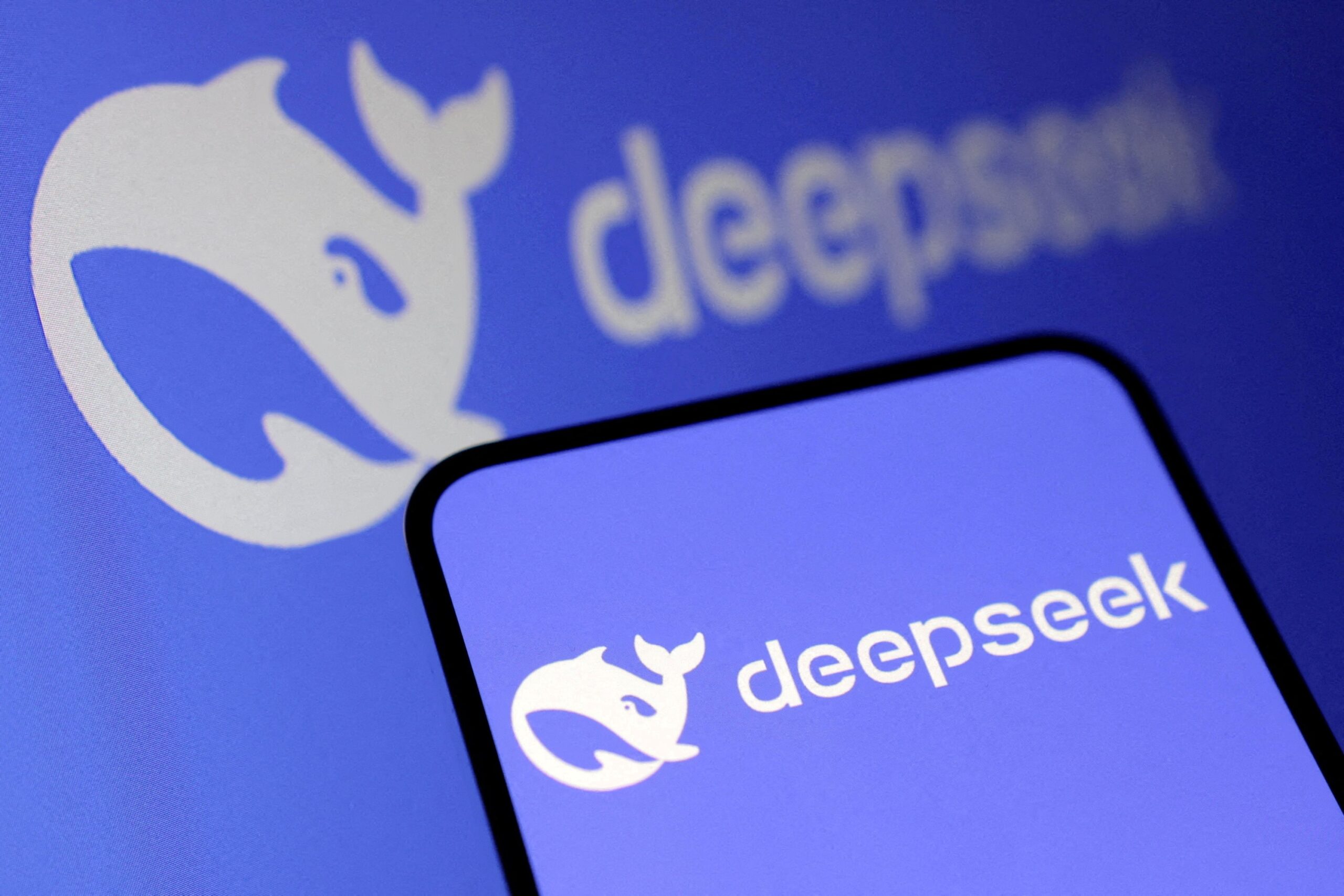
(Source)
On January 20, 2025, the Chinese chatbot DeepSeek launched on the Apple and Android app stores, offering capabilities rivaling U.S. AI giants at a fraction of the development cost. Within a day, the S&P 500 slipped by over 1.2%, and Nvidia lost over $590 billion in market share. Within a week, downloads of DeepSeek surpassed ChatGPT. Despite DeepSeek’s open-source contributions to AI development, control of the app by the People’s Republic of China and a lack of safeguards against malicious modification pose significant risks to consumers and national security. To address these concerns, U.S. AI policy must regulate the use of foreign AI products and promote domestic innovation.
On one hand, DeepSeek’s open-source nature promotes collaboration, reduces cost, accelerates innovation, and democratizes AI. Already, companies use DeepSeek’s open model to drastically reduce costs with no loss in performance. The benefits of open-sourced models come as no surprise, as older open-source AI models achieved similar benefits. For example, Meta’s LLaMA 2 provided a foundation for localized math education platforms, the Zoom AI Companion, and the provision of medical information in low-resource settings. As companies experiment with DeepSeek, similar, if not superior, results are likely.
On the other hand, concerns about exploitation, censorship, and data privacy underly prohibitions on DeepSeek in several countries, with the Trump administration currently considering a nationwide ban. The same open-source nature that invites innovation also allows for misuse. While comparable models, such as OpenAI’s ChatGPT, invest heavily in robust safeguards, DeepSeek appears relatively defenseless. A recent CISCO study employing algorithmic jailbreaking techniques found that out of fifty attempts, DeepSeek failed to block a single harmful prompt, while ChatGPT blocked 86%. Open-source models like DeepSeek also contain MIT licenses, which shield authors from liability for the same jailbreaking modifications and exploitative results.
Restrictions on the MIT license may mitigate DeepSeek’s security flaws, incentivizing more protections in the source code to reduce the risk of lawsuits. However, these restrictions would deter open-source sharing and face an uphill battle against First Amendment protection. More practically, Congress could mandate compliance by AI developers in the U.S. with safety regulations promulgated by the U.S. AI Safety Institute.
Apart from issues with security, DeepSeek is also subject to Chinese censorship. For instance, in 2023, the Cyberspace Administration of China released Interim Measures for the Administration of General Artificial Intelligence, prohibiting “subversion of state power, . . . damaging the national image, and false and harmful information.” Consequently, when asked about the Tiananmen Square Massacre or Taiwanese independence, DeepSeek responds with, “Not sure how to approach this type of question yet.”
Additionally, DeepSeek’s privacy policy states that personal information is “stored in secure servers located in the People’s Republic of China.” Chinese control of U.S. data carries the associated risks of espionage, security breaches, and campaign influence. The National Security Commission on Artificial Intelligence warns that AI deepens the threat of cyber warfare and disinformation campaigns used to “infiltrate our society, steal our data, and interfere in our democracy.” Local deployment (running DeepSeek offline) reduces the risk of data leakage, but the ease of internet access and a lack of consumer education will likely keep instances of local deployment to a minimum.
Unlike safety regulations, censorship and data leakage are unable to be fully solved without an outright ban on DeepSeek, a short-term and reactive solution. More effectively and proactively, promoting superior AI products in the U.S. bypasses the fear of foreign censorship and data collection by keeping AI consumption domestic. However, the Biden Administration curbed the development of AI during several executive orders. In 2023, the Executive Order on Safe, Secure, and Trustworthy Development and Use of Artificial Intelligence mandated internal oversight and regular testing of AI in federal agencies. Likewise, Biden’s Framework to Advance AI Governance and Risk Management in National Security requires designated department heads to implement methods of identifying and prohibiting the use of “high-risk AI.” Limitations on the use of AI pose unique risks of stifling innovation because AI models rely on a positive feedback loop of consumer interaction to “train.”
In response, Trump’s Executive Order on Initial Rescissions of Harmful Executive Orders and Actions repealed the Biden AI protections, and the Executive Order on Removing Barriers to American Leadership in Artificial Intelligence ordered the creation of an action plan to “sustain and enhance America’s global AI dominance.” Viewed as a whole, the Trump Administration is less keen on AI regulation and favors promoting innovation, especially considering Trump’s campaign promise to support a new AI infrastructure joint venture, Stargate.
Yet, the breakneck deployment of AI leads organizations like the ACLU to sound the alarm on the lack of AI safeguards. For example, Trump’s Executive Order Reforming the Federal Hiring Process and Restoring Merit to Government Service directs federal agencies to “integrate modern technology” into hiring. The ACLU warns that without the safeguards provided by the Biden Administration, AI will lead to discriminatory harms.
A third solution to maintaining U.S. dominance of commercial AI involves debilitating trade agreements that restrict access to integral technology. Currently, Nvidia’s superior parallel processing capabilities grant a virtual monopoly on GPUs for AI. In 2022, the U.S. banned the export of Nvidia’s A100 and H100 chips, but Nvidia circumvented these restrictions by creating lower-performance GPUs like the H800, which DeepSeek uses. Moving forward, the U.S. could broaden the scope of Nvidia trade restrictions to encompass weaker GPUs, accounting for more efficient AI like DeepSeek. Unfortunately, this solution promotes protectionism at the cost of global AI growth.
Suggested Citation: Nicholas Bonk-Harrison, U.S. AI Policy and the DeepSeek Problem, Cornell J.L. & Pub. Pol’y, The Issue Spotter, (Mar. 18, 2025), https://jlpp.org/us-ai-policy-and-the-deepseek-problem.


